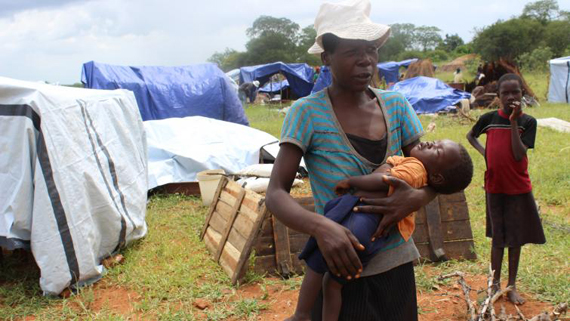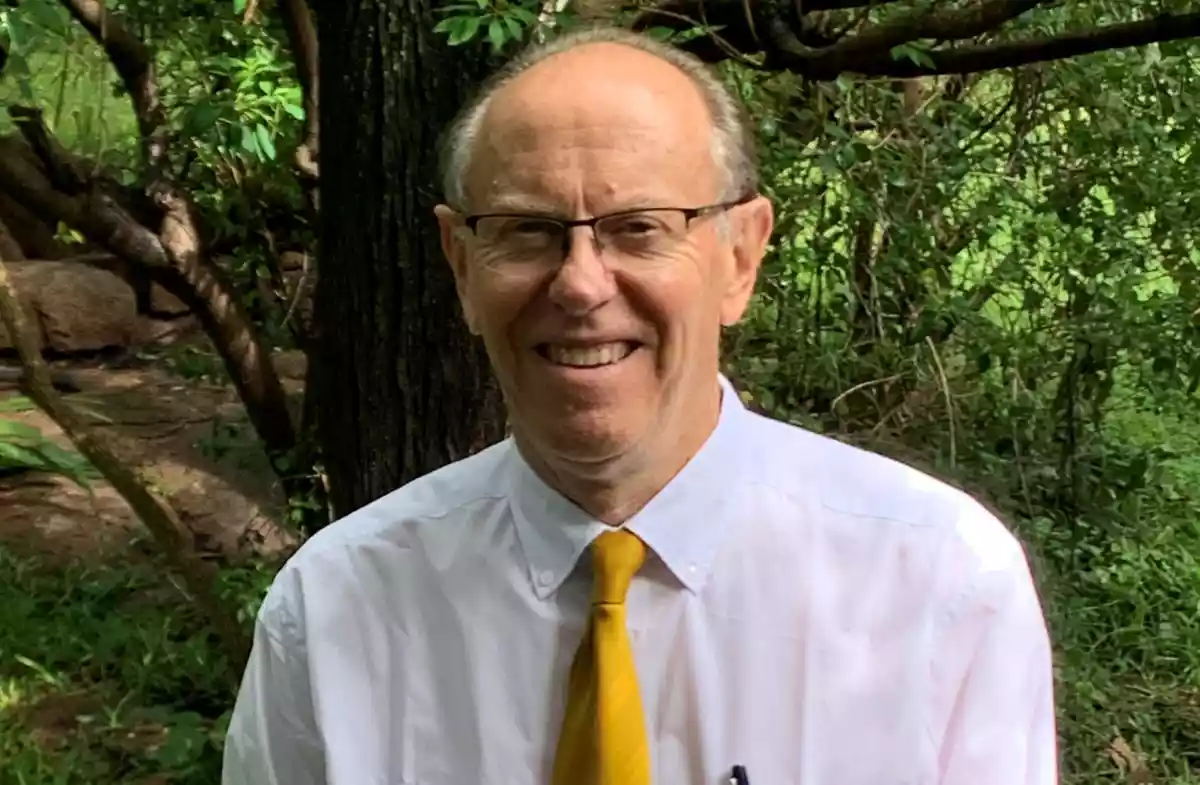
IN a few weeks, thousands of Tokwe-Mukosi Dam flood survivors mark a year since their original homes were ravaged by massive waters following flooding that hit the dam basin in Masvingo South and Chivi communal lands.
Tatenda Chitagu Own Correspondent
Approximately 3 000 families were forcibly evacuated from the soon-to-be-largest inland water reservoir’s flood basin without any compensation and stayed for days in the open along the Masvingo-Beitbridge Highway.
The villagers — some of whom only managed to take their clothes when they were evacuated — survived on a few slices of bread and orange crush for four days, before they were moved to Chingwizi transit camp in Nuanetsi Ranch, which also has no facilities for proper habitation.
At Chingwizi camp, they were promised “heaven on earth” by Masvingo Provincial Affairs minister Kudakwashe Bhasikiti, who is also the legislator for the area.
But the promised biblical Canaan did not come and is yet to arrive for the almost 18 000 villagers, one year down the line.

While the world seems to have forgotten about the plight of the families as well as probably the gravest humanitarian disaster ever to hit Masvingo, to them, it is aluta continua.
It’s a new year, but it’s the same old story of hardships, lack of accommodation, as the few who got tents say they have been subjected to wear and tear due to the vagaries of the weather, food and water shortages, small farming plots and lack of proper sanitation, schooling and healthcare.
- Chamisa under fire over US$120K donation
- Mavhunga puts DeMbare into Chibuku quarterfinals
- Pension funds bet on Cabora Bassa oilfields
- Councils defy govt fire tender directive
Keep Reading
To them, they will neither forget the year 2014, nor forgive the government for allegedly failing to resolve their problems.
“It is the setting that has changed, but the script remains the same,” Mavis Gwanyanya, one of the survivors, said.
“The only difference here is that it is spacious and we are not overcrowded, but we still use bush toilets. We are still facing food and water shortages as the boreholes were not drilled deep enough and are too far and the clinic is too far,” she said.
“We are still living in makeshift settlements and our children struggled to go to school, as they have to walk 20km a day to school and conditions are not ideal.”
She said while they received part of the compensation money – $2 million out of $9 million — not all the villagers benefited and still they are to be compensated for livestock lost, destroyed or that succumbed to diseases due to lack of pastures at the camp.
“While this is development (dam construction), it has turned out to be a curse to us who were near the dam,” she said.
“And we wonder if we will benefit from the dam. It seems the government has forgotten us.”
Another survivor said he hoped the government would improve their lives in 2015.

At the overcrowded Chingwizi transit camp, they stayed in inhuman conditions facing lack of sanitary facilities, tents, food, disrupted schooling for pupils as well as no healthcare, leading to an outbreak of waterborne diseases as well as sexually transmitted diseases.
This forced the government to hatch a plan to decongest the camp by banning humanitarian aid agencies that had intervened from supplying food handouts.
But the villagers stayed put, demanding compensation first and four hectare plots initially promised by the government, instead of one hectare plots.
Several attempts to convince villagers failed, with 10 Cabinet ministers — among them Finance minister Patrick Chinamasa, Information minister Jonathan Moyo, Local Government minister Ignatius Chombo and Lands minister, Douglous Mombeshora — being chased away and heckled by the villagers.
Bhasikiti returned to try and convince them, but was heckled and he left in a huff, despite the heavy presence of armed police, soldiers and other State security apparatus.
Then government resorted to the scorched earth policy by trying to move a clinic from the camp to where they were resettled on one-hectare plots.
But that was the last straw to break the camel’s back.
The villagers blocked the vehicles carrying the drugs from the mobile clinic, leading to clashes with the police.
Anti-riot police had to fire warning shots to disperse rioting villagers, but were disarmed and two of their trucks burnt as they fled the scene.
Police reinforced and made a pre-dawn retributive attack and burnt tents and rounded up 300 suspects who were to spend several days in an open cell at Triangle Police Station after being beaten by the police and denied food.
Others fled and hid in the mountains while some trooped back to press the government for compensation.
Chingwizi camp was sealed off and villagers had played into the government’s hands, leaving it with an excuse to force them out.
Those that were not arrested were forced to move to one-hectare plots, where they were resettled nearby, while the court battle for the 29 who were accused of orchestrating the violence lasted for months.
Twenty five of the villagers were acquitted of the public violence charges, leaving four with the pending court case and one of the villagers is still in police custody.
The government promised to provide irrigation plots for the villagers to be sugarcane outgrowers, but the bio-fuel project eyed by business mogul Billy Rautenbech seems to remain mothballed owing to political obstacles.
Bhasikiti, who is in the habit of painting a bright picture about living conditions of families, could not be reached for a comment.










